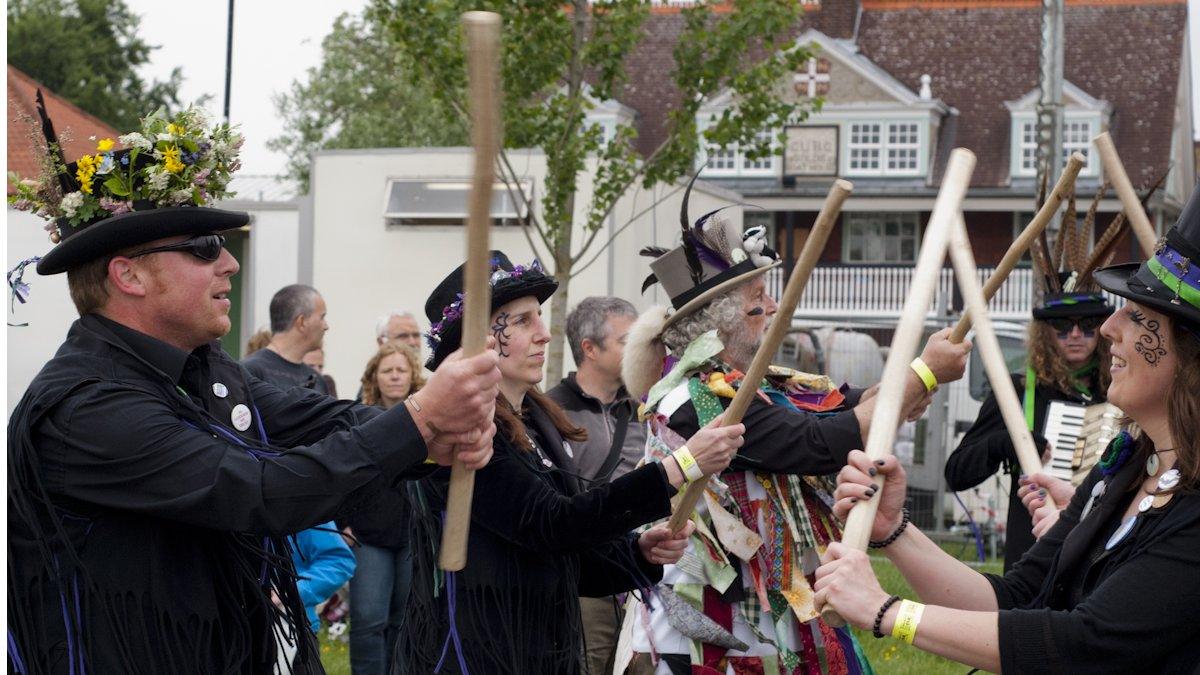Cambridge green spaces could be dug up for city heat pumps
- Published
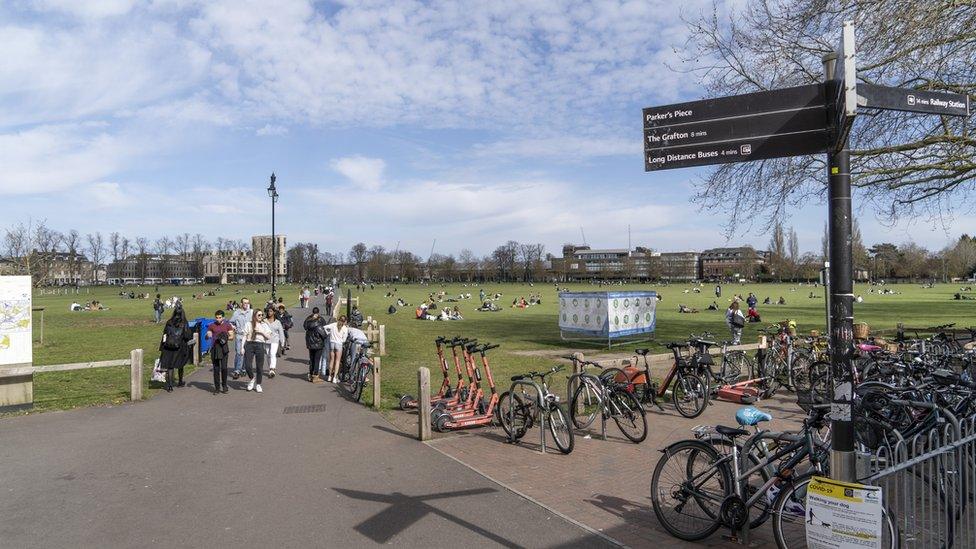
Parker's Piece is one of three open spaces that could be dug up to construct sustainable heating for Cambridge
Three parks could be dug up during construction of a city centre-wide heat pump system.
A report presented to a Cambridge City Council committee outlined where the pumps could be installed.
Up to 60% of Parker's Piece, Jesus Green and Midsummer Common could be affected.
The joint project with Cambridge University would contribute to the council's aim to have net zero carbon emissions by 2030.
After construction, the report to the Environment and Community Scrutiny Committee, external said the expectation was that "there would be little or no visual impact or loss of amenity to the open spaces".
The council faces the challenge of carrying out work like this in a conservation area, which limits its ability to install other types of heating.
The report acknowledges that "a heat network is likely to be the best (and potentially only) way to fully decarbonise these historic buildings at scale in the Cambridge City Centre Conservation Area".
"The alternative approach, attempting to decarbonise individual listed buildings with current technology, is likely to be difficult due to tight space and planning constraints," it added.
There had initially been an idea to dig a bore hole in the Market Square, close to the Guildhall, but this had been ruled out.
'Nothing ruled out'
The idea raised questions for members of the Federation of Cambridge Residents Association, which questioned what "not much visual impact" meant.
"The city's central conservation area and its commons are world famous and loved and shared by all ages," said its chairperson Wendy Blyth.
"Cows graze on Midsummer Common just five minutes away from Marks & Spencer; the common hosts Strawberry Fair; Teenagers pay football on Parker's Piece."
A spokesperson for the council said the feasibility study "looked at potential heat sources in the city centre, both on council-owned land and other sites".
They added that "these are still being explored... nothing has been ruled out at this stage", but stated that the council was no longer considering Market Square as a source of energy.
The spokesperson said it was bidding for government funding to "carry out the next stage" of exploration into energy sources and boreholes.
"We would expect to engage with a range of stakeholders through this next stage, including resident and community groups as appropriate," they added.
The next committee is scheduled for 5 October.
If funding and planning permission were given, work to install the systems could start in 2028.

Follow East of England news on Facebook, external, Instagram, external and X, external. Got a story? Email eastofenglandnews@bbc.co.uk, external or WhatsApp 0800 169 1830
Related topics
- Published14 July 2023
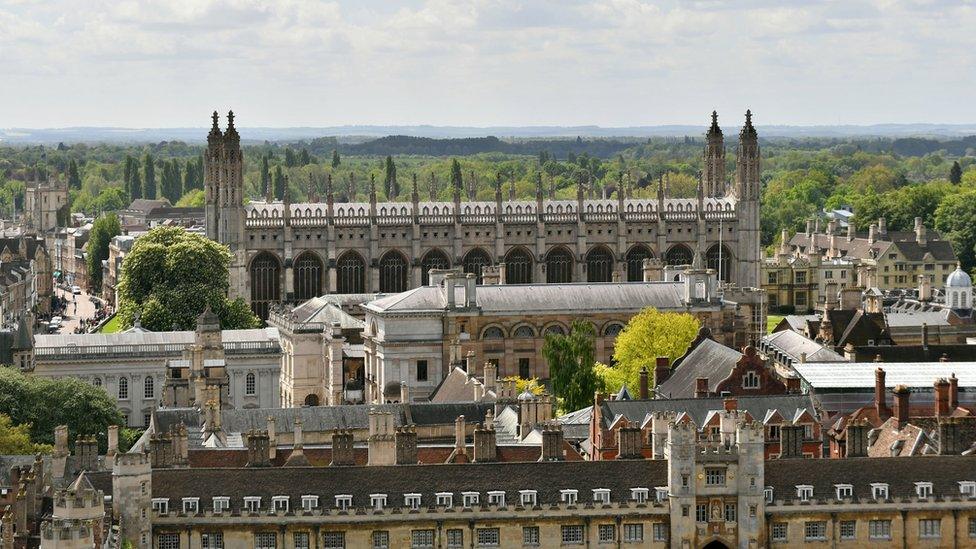
- Published9 May 2023

- Published14 June 2022
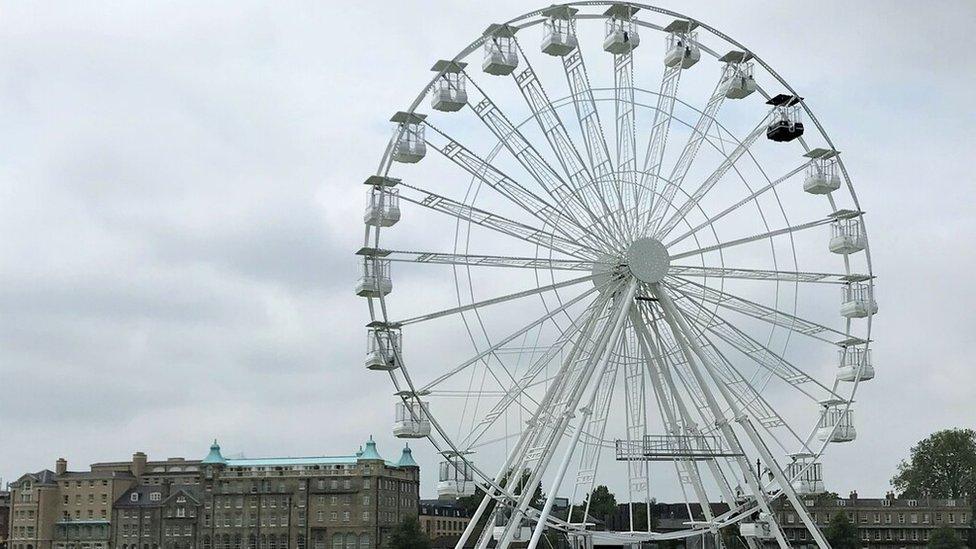
- Published26 February 2021

- Published23 November 2014
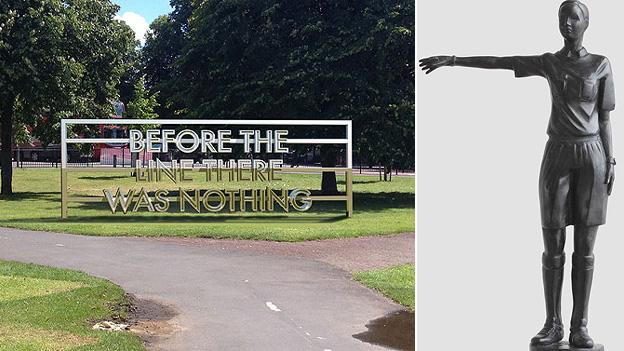
- Published2 June 2013
